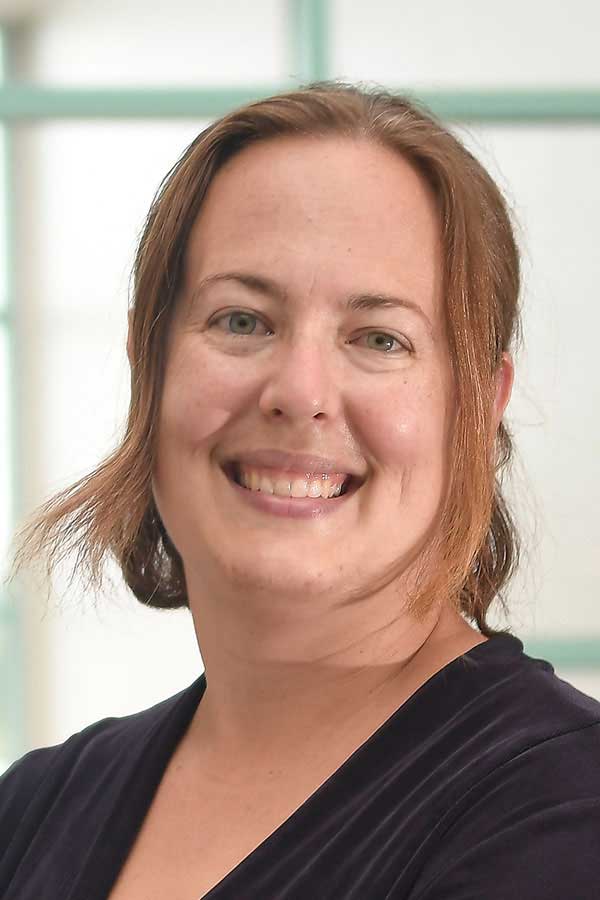Laurel Kuxhaus Promoted to Full Professor at Clarkson University
Laurel Kuxhaus has been promoted from associate professor to full professor of mechanical and aerospace engineering in the Wallace H. Coulter School of Engineering. She also directs the Orthopaedic Biomechanics Laboratory.

Kuxhaus received bachelor’s degrees in engineering mechanics and music from Michigan State University in 2001, a master’s degree in mechanical engineering from Cornell University in 2003, and a Ph.D. in bioengineering from the University of Pittsburgh in 2008.
Her laboratory work spans the field of orthopaedic biomechanics and bioengineering pedagogy. In 2018, she was elected to Fellow status of the American Society of Mechanical Engineers (ASME) and has previously served as a member of the Executive Committee of the Bioengineering Division of ASME. She served as the ASME Congressional Fellow in Bioengineering More recently (2018-19), where she spent a year on Capitol Hill working in science and technology policy as an ASME Congressional Fellow. From 2019-2023, she served as the program director of Biomechanics & Mechanobiology within the Division of Civil, Mechanical and Manufacturing Innovation at the National Science Foundation.
She was recently awarded an NIH R25-ESTEEMED grant to create The Bioengineering Research Education to AcceLerate Innovation in STEM (BOREALIS) Scholars program at Clarkson University. This research education program is designed to advance the diversity of the bioengineering research workforce by creating a pathway to bioengineering graduate study for regional, sociodemographically diverse students. Diversity in the research workforce enhances the quality of research and the provision of health care, and promotes innovation and growth—attributes essential for the public’s health and to sustain our nation’s preeminence in science.
Kuxhaus concentrates her laboratory research in the broad field of orthopaedic biomechanics including injury biomechanics of both hard and soft tissues and design of both orthopaedic implants and assistive technology devices. Past work has focused on the upper extremity with particular emphasis on the elbow and its joint stiffness. Other past projects included measurements and models of thumb force production capabilities in impaired and unimpaired individuals, quantification of ankle proprioception, and a comparison of the performance of two different hip implant designs. Her current research includes both experiments and theoretical models using the principles of solid mechanics to investigate orthopedics. A patented novel intramedullary nail has been designed in her laboratory, leading to the founding of Adaptable Ortho Innovations. Vertebral ring apophysis fractures have been created using a cervine ex-vivo model, with the goal of preventing these debilitating injuries. Ongoing work also quantifies the material and microarchitectural properties of cancellous bone. Kuxhaus also studies the pedagogy of biomechanics within an active learning environment.
